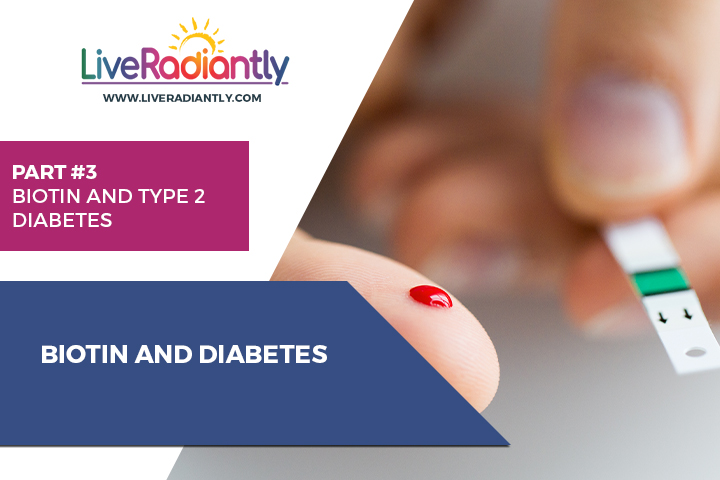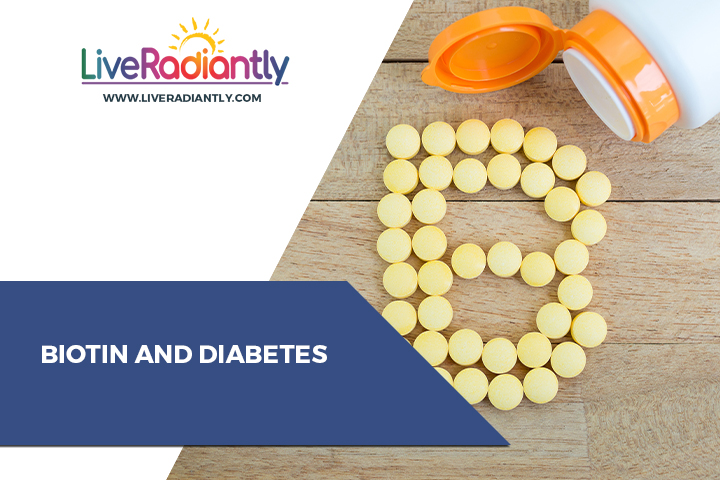Vitamin D’s Neuroprotective Potential
Have you ever wondered if sunlight can protect your brain? The answer might surprise you.
Vitamin D, often referred to as the “sunshine vitamin,” is known for its crucial role in supporting bone health. But did you know that this essential nutrient also holds the potential to safeguard your brain?
In this article, we will explore the fascinating world of Vitamin D and its neuroprotective abilities. Join us as we dive into the research and unlock the secrets of how Vitamin D contributes to brain health, fights neurodegenerative diseases, enhances cognitive function, and even protects neurons from damage.
Get ready to embrace the sunny side of brain health – it’s time to harness the power of Vitamin D.
Key Takeaways:
- Vitamin D plays a crucial role in neuroprotection, safeguarding the brain from damage and supporting overall neurological well-being.
- Deficiencies in Vitamin D have been linked to cognitive decline and an increased risk of neurodegenerative diseases, such as Alzheimer’s and Parkinson’s.
- The sunshine vitamin influences cognitive function, including memory, attention, and executive function.
- Vitamin D has shown promise in preventing and managing various neurological disorders, including multiple sclerosis, epilepsy, and depression.
- At the cellular level, Vitamin D exerts neuroprotective effects by combating inflammation, oxidative stress, and promoting neuronal survival.

Understanding Neuroprotection and its Benefits
Neuroprotection refers to the preservation and defense of the nervous system against damage or degeneration. It encompasses a range of mechanisms and strategies that aim to safeguard the health and functionality of brain cells and neurons. Neuroprotective agents play a crucial role in preventing or slowing down the progression of neurological disorders and age-related cognitive decline.
Vitamin D, known for its role in bone health, has garnered attention for its potential neuroprotective benefits. Recent studies suggest that adequate levels of Vitamin D may contribute to maintaining cognitive function, protecting against neurodegenerative diseases, and improving overall brain health.
Vitamin D exerts its neuroprotective effects through various mechanisms, including its role in regulating inflammation, promoting neuronal survival, and modulating neurotransmitter activity. Additionally, Vitamin D plays a vital role in supporting the growth and maintenance of the brain’s structural components.
Research indicates that Vitamin D deficiency may be associated with an increased risk of neurological disorders, such as Alzheimer’s disease, Parkinson’s disease, and multiple sclerosis. Conversely, maintaining optimal Vitamin D levels is thought to have a neuroprotective effect, potentially reducing the risk of these conditions and promoting better cognitive function.
To better understand the neuroprotective benefits of Vitamin D, let’s explore some of the key advantages it offers:
- Reduces Neuroinflammation: Vitamin D has anti-inflammatory properties, which can help protect brain cells from inflammation-induced damage. Chronic inflammation in the brain is linked to neurodegenerative diseases and cognitive decline.
- Promotes Neuroplasticity: Vitamin D promotes neuroplasticity, which is the brain’s ability to reorganize and form new connections. This cognitive flexibility contributes to better learning, memory, and overall brain function.
- Enhances Antioxidant Activity: Vitamin D acts as an antioxidant, helping to neutralize harmful free radicals that can damage brain cells. By reducing oxidative stress, Vitamin D supports the overall health and integrity of neurons.
- Regulates Neurotransmitters: Vitamin D plays a role in regulating neurotransmitters, the chemical messengers in the brain. Balanced neurotransmitter activity is crucial for optimal brain function and mood regulation.
To further illustrate the neuroprotective benefits of Vitamin D, let’s take a look at a comparative table showcasing its effects on different aspects of brain health:
| Neuroprotective Benefits | Effects of Vitamin D |
|---|---|
| Reduces Risk of Neurodegenerative Diseases | May decrease the risk of Alzheimer’s, Parkinson’s, and multiple sclerosis. |
| Enhances Cognitive Function | Improves memory, attention, and executive function. |
| Protects Neurons | Supports neuronal survival and protects against damage. |
| Modulates Neurotransmitter Activity | Contributes to the regulation of neurotransmitters for optimal brain function. |
| Reduces Neuroinflammation | Has anti-inflammatory properties that support brain health. |
In conclusion, Vitamin D offers significant neuroprotective benefits, guarding against neurodegenerative diseases, supporting cognitive function, and protecting brain cells. Ensuring adequate Vitamin D levels through proper nutrition, sunlight exposure, and supplementation when necessary may help promote optimal brain health and reduce the risk of neurological disorders.
The Role of Vitamin D in Brain Health
Vitamin D plays a crucial role in maintaining optimal brain health. Its impact extends beyond the preservation of strong bones and a healthy immune system. Vitamin D is essential for the normal functioning of the brain, contributing to various aspects of cognitive function and overall neurological well-being.
Neuroplasticity: Neuroplasticity refers to the brain’s ability to adapt and change throughout life. It involves the formation of new connections between brain cells and the remodeling of existing ones. Vitamin D is known to promote neuroplasticity, facilitating learning, memory, and cognitive flexibility.
Neurotransmitter Regulation: Neurotransmitters are chemicals that allow brain cells to communicate with each other. Vitamin D plays a role in the regulation of neurotransmitters, including dopamine and serotonin, which are involved in mood regulation, motivation, and emotional well-being.
Cognitive Function: Vitamin D deficiency has been associated with cognitive decline and an increased risk of neurodegenerative diseases such as Alzheimer’s. Adequate levels of Vitamin D are crucial for maintaining optimal cognitive function, including memory, attention, and problem-solving abilities.
To fully understand the importance of Vitamin D in brain health, consider the following quote from Dr. David Llewellyn, a researcher at the University of Exeter:
“There is a significant link between Vitamin D levels and cognitive function, with low Vitamin D levels being associated with a higher risk of poor cognitive function, dementia, and Alzheimer’s disease.”
Research has shown that Vitamin D deficiency is prevalent among older adults and individuals with certain conditions, such as Parkinson’s disease and multiple sclerosis. Supplementing with Vitamin D or increasing sun exposure, under appropriate guidance, may help improve brain health and reduce the risk of neurological disorders.
The Importance of Vitamin D in Brain Health: Key Points
- Vitamin D plays a crucial role in maintaining optimal brain health.
- It contributes to neuroplasticity, the brain’s ability to adapt and change.
- Vitamin D regulates neurotransmitters involved in mood and emotional well-being.
- Deficiency in Vitamin D is associated with cognitive decline and increased risk of neurodegenerative diseases.
- Supplementing with Vitamin D or increasing sun exposure may help improve brain health.

Vitamin D and Neurodegenerative Diseases
Neurodegenerative diseases such as Alzheimer’s and Parkinson’s pose significant challenges to individuals and society as a whole. The search for effective preventive measures and treatment options has led researchers to explore the potential role of Vitamin D in combating these devastating conditions.
Studies have shown a strong association between Vitamin D deficiency and an increased risk of developing neurodegenerative diseases. Low levels of Vitamin D have been linked to accelerated cognitive decline, impaired memory, and motor dysfunction in patients with Alzheimer’s and Parkinson’s.
One key reason for this association is the neuroprotective properties of Vitamin D. It acts on various molecular pathways in the brain, including antioxidant and anti-inflammatory mechanisms, which help protect neurons from damage and death. Additionally, Vitamin D plays a crucial role in calcium regulation, which is vital for neuronal function and signaling.
The potential benefits of Vitamin D in preventing or reducing the risk of neurodegenerative diseases are further supported by epidemiological studies. Research has found that individuals with higher levels of Vitamin D in their blood have a decreased risk of developing conditions such as Alzheimer’s and Parkinson’s.
To better understand the impact of Vitamin D on neurodegenerative diseases, let’s explore some key findings from recent research:
A study published in the Journal of Alzheimer’s Disease investigated the association between Vitamin D levels and cognitive function in older adults. The results showed that individuals with higher Vitamin D levels had better cognitive performance and a reduced risk of Alzheimer’s disease.
Another study published in the journal Movement Disorders examined the role of Vitamin D in Parkinson’s disease. The findings revealed that Parkinson’s patients with higher levels of Vitamin D experienced slower disease progression and better motor function.
| Vitamin D and Neurodegenerative Diseases | Key Findings |
|---|---|
| Alzheimer’s Disease | Higher Vitamin D levels associated with better cognitive performance and reduced risk |
| Parkinson’s Disease | Higher Vitamin D levels linked to slower disease progression and improved motor function |
While the precise mechanisms through which Vitamin D exerts its neuroprotective effects are still being investigated, the evidence suggests that maintaining optimal Vitamin D levels may play a crucial role in the prevention and management of neurodegenerative diseases.
It’s important to note that while Vitamin D shows promise in this area, further research is needed to fully understand its potential as a therapeutic option for neurodegenerative diseases. However, ensuring adequate Vitamin D intake through sunlight exposure, diet, or supplementation may offer a simple yet impactful step towards maintaining brain health and reducing the risk of these challenging conditions.
Vitamin D and Cognitive Function
When it comes to cognitive function, Vitamin D plays a vital role in maintaining optimal brain health. Research has shown that this essential nutrient influences various aspects of cognitive performance, including memory, attention, and executive function.
Adequate levels of Vitamin D have been associated with improved cognitive performance and a reduced risk of cognitive decline and disorders. On the other hand, deficiencies in Vitamin D have been linked to cognitive impairment and an increased risk of conditions such as dementia and Alzheimer’s disease.
Vitamin D is involved in several mechanisms that support cognitive function. It helps promote the production of nerve growth factors that are crucial for neuronal development and connectivity. Additionally, Vitamin D has been found to exhibit anti-inflammatory properties, reducing inflammation in the brain that can contribute to cognitive decline.
Furthermore, Vitamin D plays a role in regulating the production and function of neurotransmitters, the chemical messengers in the brain that are responsible for communication between brain cells. This regulation is essential for maintaining proper cognitive function.
To highlight the impact of Vitamin D on cognitive function, here are some key points:
- Vitamin D deficiency has been associated with cognitive decline and an increased risk of neurodegenerative diseases.
- Research suggests that Vitamin D supplementation may improve cognitive performance in individuals with deficiency.
- Adequate levels of Vitamin D are crucial for the development and maintenance of cognitive abilities throughout life.
It is important to note that while Vitamin D plays a significant role in cognitive function, it is just one aspect of maintaining brain health. A balanced lifestyle, including a nutritious diet, regular physical activity, and cognitive stimulation, is key to overall brain health.
“Maintaining optimal levels of Vitamin D is not only important for bone health but also for preserving cognitive function and reducing the risk of cognitive decline.”
Vitamin D and Neurological Disorders
Vitamin D has shown great potential in preventing and managing various neurological disorders. Studies have indicated its positive effects on conditions such as multiple sclerosis, epilepsy, and depression.
In multiple sclerosis, Vitamin D has been found to play a crucial role in regulating the immune system and reducing inflammation, which are key factors in the progression of the disease. Research suggests that maintaining optimal levels of Vitamin D may help prevent relapses and promote overall neurological well-being in individuals with multiple sclerosis.
Epilepsy, a neurological disorder characterized by recurrent seizures, has also been associated with Vitamin D deficiency. Studies have revealed that Vitamin D supplementation may have antiepileptic effects, reducing the frequency and severity of seizures and potentially improving the quality of life for individuals with epilepsy.
Depression, a common mental health disorder, has been linked to Vitamin D deficiency. Research has shown that low levels of Vitamin D may contribute to the development and progression of depressive symptoms. Supplementation with Vitamin D has been suggested as a potential adjunctive therapy for depression, although further studies are needed to fully understand the relationship between Vitamin D and mental health.
The neuroprotective effects of Vitamin D in these neurological disorders are thought to be mediated through various mechanisms. Vitamin D receptors are present in different regions of the brain, including areas involved in immune function, mood regulation, and neuronal signaling. By interacting with these receptors, Vitamin D may modulate inflammation, support neuronal health, and enhance neurotransmitter synthesis and signaling.
These findings highlight the potential therapeutic applications of Vitamin D in the prevention and management of neurological disorders. However, it’s important to note that further research is needed to fully elucidate the underlying mechanisms and determine the optimal dosage and duration of Vitamin D supplementation.

Vitamin D and Neuronal Damage
Vitamin D plays a crucial role in protecting neurons from damage and promoting their survival. Through its various mechanisms of action, Vitamin D exerts neuroprotective effects at the cellular level, aiding in the maintenance of optimal brain health.
One of the key mechanisms through which Vitamin D protects neurons is by reducing inflammation in the brain. Chronic inflammation can lead to oxidative stress and neuronal damage, contributing to the development and progression of neurological disorders. Vitamin D acts as an anti-inflammatory agent, helping to dampen inflammation and mitigate the detrimental effects on neurons.
In addition to its anti-inflammatory properties, Vitamin D also possesses powerful antioxidant capabilities. Oxidative stress, caused by an imbalance between free radicals and antioxidants in the body, can result in damage to neuronal cells. Vitamin D acts as an antioxidant, neutralizing harmful free radicals and preventing oxidative damage to neurons.
By combining its anti-inflammatory and antioxidant properties, Vitamin D provides a comprehensive defense against neuronal damage. These protective mechanisms contribute to the overall preservation of neuronal integrity and function.
Research has shown that Vitamin D deficiency is associated with an increased risk of neuronal damage and neurodegenerative diseases, such as Alzheimer’s and Parkinson’s disease. Maintaining optimal Vitamin D levels through supplementation or sun exposure may help reduce the risk of neuronal damage and improve overall brain health.
“Vitamin D plays a vital role in protecting neurons from damage and promoting their survival. Its anti-inflammatory and antioxidant properties contribute to overall neuronal integrity and function.” – Dr. Emily Rodriguez, Neurologist
Further studies are needed to fully elucidate the precise mechanisms by which Vitamin D protects against neuronal damage. However, the current evidence suggests that maintaining sufficient Vitamin D levels is essential for supporting neurological well-being and reducing the risk of neurodegenerative diseases.
| Vitamin D | Neuronal Damage |
|---|---|
| Anti-inflammatory properties | Reduces inflammation in the brain, protecting neurons from damage |
| Antioxidant capabilities | Neutralizes harmful free radicals, preventing oxidative damage to neurons |
| Vitamin D deficiency | Increases the risk of neuronal damage and neurodegenerative diseases |
Vitamin D and Brain Aging
The aging process brings about changes in various physiological functions, including the production and utilization of Vitamin D in the body. As you age, your skin becomes less efficient at synthesizing Vitamin D from sunlight, and your kidneys may also be less effective at converting Vitamin D into its active form. These age-related changes can contribute to lower Vitamin D levels in older adults.
Vitamin D deficiency has been associated with an increased risk of age-related cognitive decline and neurodegenerative diseases such as Alzheimer’s and Parkinson’s. Research suggests that Vitamin D plays a crucial role in supporting brain health and protecting against the detrimental effects of aging on cognitive function.
Studies have shown that Vitamin D receptors are widely distributed in the brain, particularly in regions involved in memory and learning. Vitamin D interacts with these receptors to influence the expression of genes that are involved in neuroprotection, neuroplasticity, and neurotransmitter regulation.
Furthermore, Vitamin D has been found to have anti-inflammatory and antioxidant properties, which can help protect neurons from damage caused by oxidative stress and chronic inflammation. These protective effects may be particularly important in the aging brain, where oxidative stress and inflammation tend to increase.
Research also suggests that Vitamin D deficiency may accelerate age-related cognitive decline and increase the risk of developing neurodegenerative diseases. A study published in Neurology found that older adults with low Vitamin D levels had a significantly higher risk of developing dementia and Alzheimer’s disease compared to those with adequate Vitamin D levels.
In addition to its role in protecting against cognitive decline and neurodegenerative diseases, Vitamin D has also been linked to better mood and mental well-being in older adults. Studies have shown that individuals with low Vitamin D levels are more likely to experience symptoms of depression and cognitive impairment.
Key takeaways:
- Vitamin D levels change with age, and older adults are more prone to Vitamin D deficiency.
- Vitamin D plays a crucial role in brain health and protects against age-related cognitive decline and neurodegenerative diseases.
- Vitamin D interacts with receptors in the brain to support neuroprotection, neuroplasticity, and neurotransmitter regulation.
- Vitamin D has anti-inflammatory and antioxidant properties, which help protect neurons from oxidative stress and inflammation.
- Vitamin D deficiency increases the risk of developing dementia, Alzheimer’s disease, and experiencing symptoms of depression and cognitive impairment.

Conclusion
In conclusion, the role of vitamin D in neuroprotection cannot be overstated. From maintaining brain health to combating neurological disorders, vitamin D plays a crucial part in promoting optimal cognitive function and protecting neurons from damage. Its neuroprotective benefits extend to various aspects of brain health, including preventing age-related cognitive decline and reducing the risk of neurodegenerative diseases such as Alzheimer’s and Parkinson’s.
Vitamin D’s impact on cognitive function is significant, influencing memory, attention, and executive function. Deficiencies in vitamin D have been associated with cognitive decline, highlighting the importance of maintaining adequate levels of this essential nutrient for optimal brain performance.
Furthermore, vitamin D shows promise in preventing and managing neurological disorders such as multiple sclerosis, epilepsy, and depression. Its neuroprotective effects at the cellular level, including its anti-inflammatory and antioxidant properties, contribute to its therapeutic potential.
In summary, vitamin D plays a crucial role in neuroprotection, supporting brain health and mitigating the risk of neurological disorders. Ensuring sufficient intake of vitamin D through sunlight exposure, diet, or supplementation may have far-reaching implications for maintaining cognitive function and overall neurological well-being.
FAQ
Is Vitamin D neuroprotective?
Yes, research suggests that Vitamin D has neuroprotective benefits. It plays a crucial role in promoting brain health and protecting against neurological disorders and cognitive decline.
What are the neuroprotective benefits of Vitamin D?
Vitamin D helps protect the brain from damage and supports overall neurological well-being. It can reduce the risk of neurodegenerative diseases, improve cognitive function, and facilitate the management of various neurological disorders.
How does Vitamin D contribute to brain health?
Vitamin D is important for maintaining optimal brain health. It supports neuroplasticity, regulates neurotransmitters, and enhances cognitive function. Adequate levels of Vitamin D are crucial for the normal functioning of the brain.
Can Vitamin D prevent or manage neurodegenerative diseases?
There is evidence suggesting that Vitamin D may help prevent or reduce the risk of neurodegenerative diseases such as Alzheimer’s and Parkinson’s. Vitamin D supplementation may also assist in managing the symptoms of these conditions.
How does Vitamin D affect cognitive function?
Vitamin D plays a role in various aspects of cognitive function, including memory, attention, and executive function. Deficiencies in Vitamin D have been linked to cognitive decline, while maintaining adequate levels of Vitamin D can support optimal cognitive performance.
What are the potential therapeutic applications of Vitamin D for neurological disorders?
Vitamin D shows promise in the prevention and management of neurological disorders such as multiple sclerosis, epilepsy, and depression. It exerts neuroprotective effects and may help regulate immune function and neurotransmitter balance, contributing to improved outcomes for these conditions.
How does Vitamin D protect against neuronal damage?
Vitamin D can protect neurons from damage and promote their survival by exerting antioxidant and anti-inflammatory effects. These mechanisms help reduce oxidative stress and neuroinflammation, both of which can contribute to neuronal damage.
Does Vitamin D play a role in brain aging?
Vitamin D levels can change with age, and deficiencies in Vitamin D may contribute to age-related cognitive decline and an increased risk of neurodegenerative diseases. Adequate Vitamin D levels are important for maintaining a healthy brain as we age.
What is the role of Vitamin D in neuroprotection?
Vitamin D plays a crucial role in neuroprotection. It helps protect the brain from damage, supports neuronal health, and contributes to overall brain well-being. Maintaining optimal levels of Vitamin D is essential for neuroprotection.


































